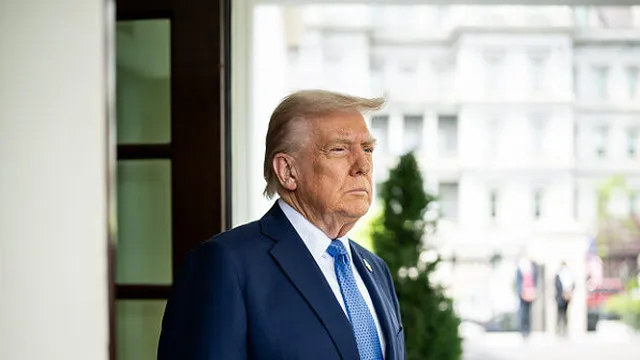
European leaders agree to increase defense spending to 5% of GDP amid U.S. pressure
2025-06-26 00:00- NATO leaders in The Hague agreed to increase their defense spending commitments substantially to 5% of GDP.
- President Trump emphasized the importance of burden-sharing among NATO allies in collective defense efforts.
- This significant change marks a historic triumph for Trump's administration in reshaping NATO's financial commitments.
Express your sentiment!
Insights
On June 25, 2025, during a NATO summit in The Hague, Netherlands, U.S. President Donald Trump reaffirmed American commitment to NATO's collective defense, exemplified by his assertion that an attack on one member is an attack on all. Amid escalating security threats, NATO allies agreed to increase their defense expenditures from a minimum of 2% to a new target of 5% of GDP by 2035, marking a historic commitment for the alliance. This shift, emphasized during discussions, aims to alleviate the defense burden traditionally shouldered by the United States and to expand military capabilities across Europe. U.S. officials highlighted that this change serves not only as a significant win for the U.S. taxpayers but also enhances overall security for both the U.S. and its allies. Trump's leadership on this issue was pivotal in persuading NATO members to commit to these higher spending levels, leading to significant investments in defense and military readiness. This change was interpreted as a reflection of European nations' desire to assert more responsibility in collective security, particularly in light of growing geopolitical tensions, including threats posed by Russia and instability in the Middle East. The summit illustrated a shift in perspective for many leaders, acknowledging the necessity for robust security measures to counter rising global threats. Secretary General Mark Rutte of NATO recognized Trump's influence in driving these commitments, labeling them as a monumental win for Western civilization and crucial for the security architecture of Europe and beyond.
Contexts
The implications of a 5% GDP defense spending on European security are profound and multifaceted, especially in the context of the evolving geopolitical landscape. As Europe faces increasing threats from both state and non-state actors, including aggressive posturing from nearby nations and rising global terrorism, the need for robust defense capabilities has never been more critical. Allocating 5% of GDP to defense would represent a dramatic increase in military budgets across European nations, which could enhance collective security measures and enable a more coherent response to potential threats. This financial commitment would likely facilitate substantial advances in military technology, cybersecurity, intelligence sharing, and joint military exercises, strengthening the overall defense posture of the European continent against adversarial actions that undermine stability and sovereignty. Furthermore, such a significant increase in defense spending could stimulate economic growth within European nations. The defense sector typically generates numerous jobs and stimulates advancements in research and development. As states invest in their military capabilities, there may be an accompanying boost in local economies, particularly in regions housing defense contractors and related industries. However, this focus on military spending may also raise concerns about diverting resources from critical areas such as education, healthcare, and social welfare. Balancing these allocations will be crucial to maintain public support and ensure sustainable national policies while addressing security needs. In addition to economic implications, the psychological impact of heightened defense spending on European security should not be underestimated. Increased investments in defense can deter potential aggressors by projecting strength and resolve. European nations collaborating to collectively strengthen their military capabilities and engage in enhanced deterrence strategies may create a more secure environment, encouraging stability in neighboring regions. At the same time, however, this could provoke an arms race or exacerbate tensions with adversarial states, potentially leading to heightened military confrontations if not managed carefully. International diplomacy and dialogue remain essential to complement military enhancements and foster a climate of trust instead of fear. Ultimately, the implications of transitioning to 5% GDP defense spending underscore a pivotal moment in European security. While the need for enhanced military capabilities is clear, it is equally important to consider the broader ramifications on socio-economic dynamics and regional diplomatic relations. The path forward must involve a comprehensive assessment of priorities, ensuring that increased defense spending translates into real security improvements without sacrificing the foundational elements of social cohesion and public well-being in European societies.